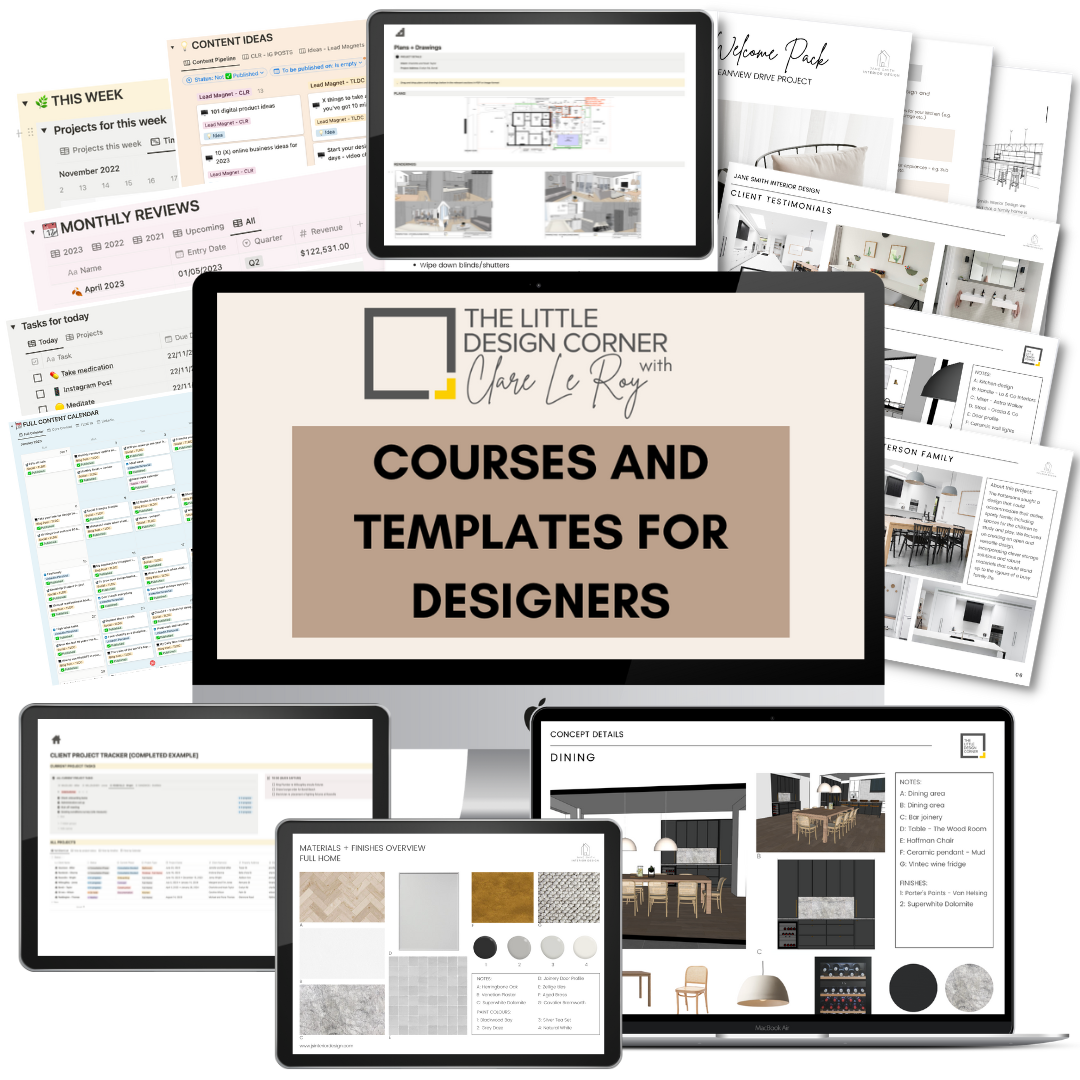Questions to ask your interior design clients (BEFORE you take them on)
Difficult clients are stressful and often not worth the money!
But the good news is they often leave hints early on that they are going to be hard to work with.
Here are six questions I always made sure to ask before I committed to a new project.
1. What is your budget for this project?
Knowing the budget upfront helps in setting realistic expectations for both you (as the designer) as well as for the client. Their budget will inform the scope of work, materials that could be used and other costs.
Will it align with the sort of work you enjoy doing?
Will it result in a good outcome?
A client who is unclear or unrealistic about their budget could be difficult to work with and will always want more than is possible for what they are willing to pay.
2. What is your timeline?
A client's reaction to a discussion about timeline will normally reveal how flexible they are and give you a snapshot of their personality.
A client who insists on an unreasonably tight timeline could be high maintenance in other aspects of the project as well, such as demanding frequent revisions or being indecisive.
On the other hand a client willing to set a realistic timeline often indicates a better understanding of the design process and shows they are invested in a successful outcome.
3. Do you have any specific ideas or inspiration for the space?
This gives insight into the client's taste and whether it aligns with yours.
I only once took on a client who had different taste to mine and it was a complete disaster (as I could never make them happy). So proceed with caution if they show you inspiration pictures that are nothing like the way you design.
Different styles normally equal unhappy clients (and additional stress for you!)
4. How involved do you want to be in the decision making process?
Some clients prefer a hands off approach while others want to be part of every small decision.
Knowing this upfront can help you gauge if the way they like to work aligns with your own methods.
For example, a client who wants excessive involvement without adequate understanding of the design process may be a red flag. These clients often second guess every decision, which lead to project delays and an outcome you aren't happy with.
5. Have you worked with a designer before? How did that go?
I always find this quite a telling question.
If they have "tried out" other designers before or tell stories of finding other designers hard to work with then this is often a red flag for me. If they excessively blame a previous designer for all the problems in a previous project it could indicate they are hard to please or they have unrealistic expectations.
It could be they just had a bad experience - but it's 100% one worth discussing in more detail.
6. Who will be the primary decision maker for the project?
If a client insists on having multiple points of contact it could be a red flag that the project might suffer from internal conflicts and slow decision making.
Yes, I'm talking about married couple drama here (where we end up as marriage counsellors rather than designers!) 🤦🏻♀️😂
If the clients are reluctant to assign a primary point of contact it might indicate internal misalignment, there could be issues with invoice sign offs and decision making could be slow.
I always weaved these questions into my paid initial design consultation.
They always helped me gauge not just the technicalities of a project but also the potential dynamics of the client relationship (both for me with the clients and for the clients with themselves!) If my gut told me something was off, I generally didn't take the project.
Remember - this is your business and you get to choose who you work with!!
Thanks for reading and catch you in my next post :)
Clare x
Dr Clare Le Roy
Courses and Templates for Designers and Architects
DO YOU WANT TO….
Improve your professionalism?
Find more clients?
Bring in more revenue?
Create better systems and processes?
Then check out my business courses and templates for designers and architects.
These courses and templates leave you with work done - not just a long list of things you need to do next. We have a really strong focus on taking action and getting things created that improve your business.








